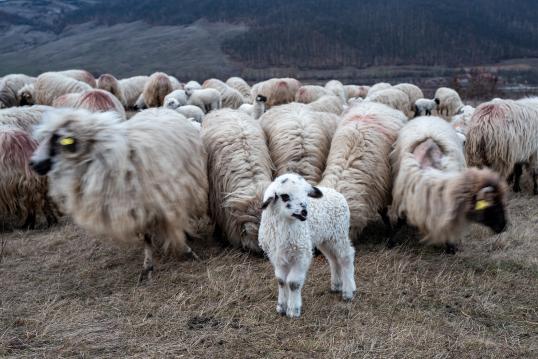What if we could make all our clothes out of just one material? Specifically, what if we only used the wool from the one billion sheep that currently exist on the planet? It may seem like a far-fetched idea, but it serves as a thought experiment to explore the limits of our resources and the impact of our consumption on the planet.
Alexandra Fruhstorfer and her team are exploring the potential of this scenario through the Transitory Yarn project, which investigates alternative ways of utilising materials for clothing and treating the people and creatures involved in their creation more respectfully. One of the tools they are developing is an online software that allows users to simulate garment possibilities using only 1000 grams of sheep's wool.
Sheep have been our constant and important companions throughout human history. However, in modern societies we have lost a lot of appreciation for them. With our idea we are trying to help sheep find their way back into our narratives and to raise appreciation for the origins of the materials we wear, - Fruhstorfer said.
The idea is not just about limiting our resources, but also about finding new ways to create a circular economy in fashion. By utilising the technology of knitting, unused wool from old garments can be recovered and transformed into something new. The software in development will help repurpose the recovered material by simulating new knitting projects. In the long term, the project aims to create a platform that facilitates a network and community of stakeholders along the wool supply chain, from sheep to wool user.
The project is not just about sustainability and resourcefulness; it is also about bringing back appreciation for the origins of the materials we wear. Ultimately, the project serves as a reminder of the importance of imagination and creativity in tackling the challenges we face in creating a habitable planet. By exploring scenarios of radical limitation, we can shift our perspectives and find new solutions to old problems. It may seem like a small step, but limiting ourselves to one material could have a significant impact on the way we consume and produce fashion.
This project is supported by the WORTH partnership project, funded by the EU Programme for the Competitiveness of Enterprises and Small and Medium-sized Enterprises (COSME)

